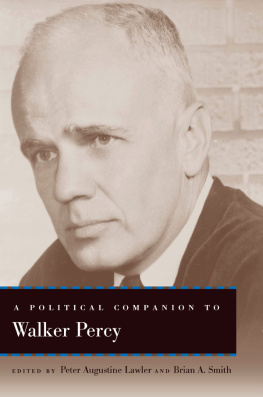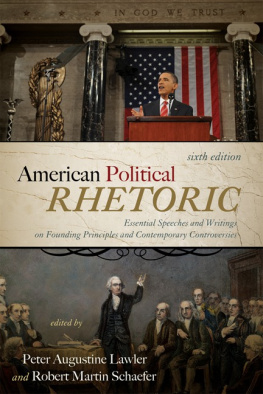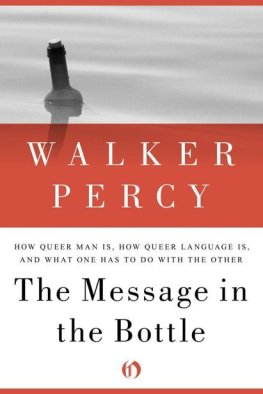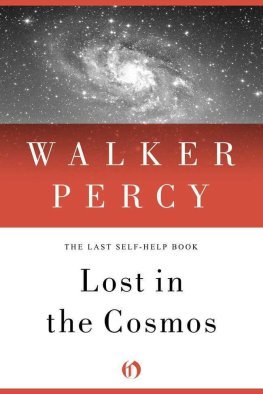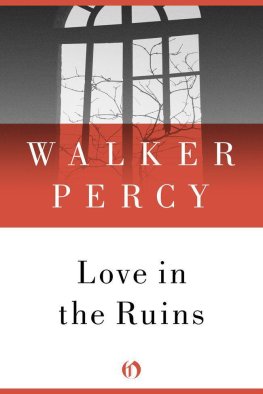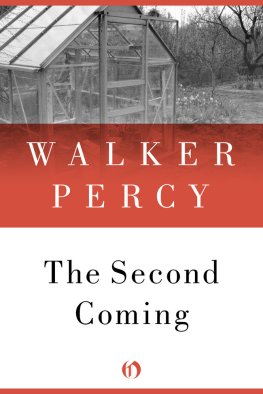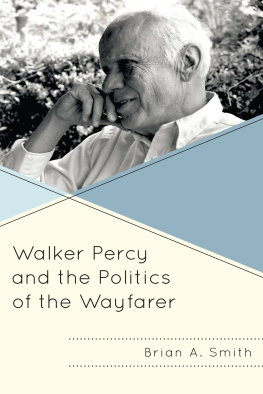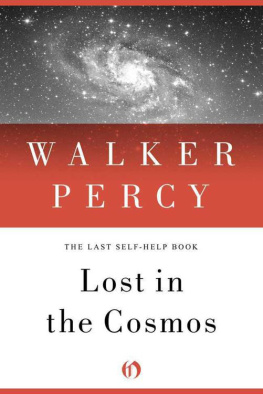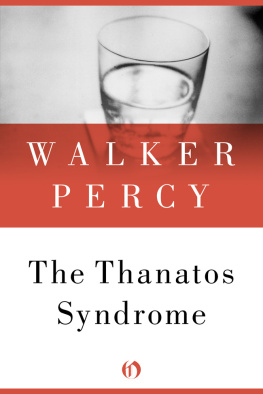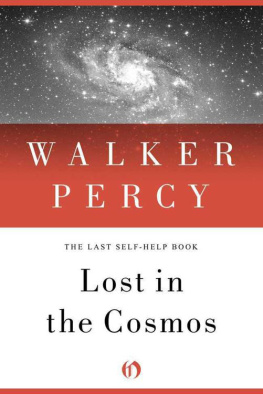A Political Companion to Walker Percy
Edited by
PETER AUGUSTINE LAWLER
and
BRIAN A. SMITH
Copyright 2013 by The University Press of Kentucky
Scholarly publisher for the Commonwealth, serving Bellarmine University, Berea College, Centre College of Kentucky, Eastern Kentucky University, The Filson Historical Society, Georgetown College, Kentucky Historical Society, Kentucky State University, Morehead State University, Murray State University, Northern Kentucky University, Transylvania University, University of Kentucky, University of Louisville, and Western Kentucky University.
All rights reserved.
Editorial and Sales Offices: The University Press of Kentucky
663 South Limestone Street, Lexington, Kentucky 40508-4008
www.kentuckypress.com
17 16 15 14 13 5 4 3 2 1
Library of Congress Cataloging-in-Publication Data
A political companion to Walker Percy / edited by Peter Augustine Lawler and Brian A. Smith.
pages cm
Includes bibliographical references and index.
ISBN 978-0-8131-4188-6 (hardcover : alk. paper) ISBN 978-0-8131-4190-9 (epub) ISBN 978-0-8131-4189-3 (pdf)
1. Percy, Walker, 1916-1990Political and social views. I. Lawler, Peter Augustine, editor of compilation. II. Smith, Brian A, editor of compilation.
PS3566.E6912Z795 2013
This book is printed on acid-free paper meeting the requirements of the American National Standard for Permanence in Paper for Printed Library Materials.

Manufactured in the United States of America.
 | Member of the Association of American University Presses |
Series Foreword
Those who undertake a study of American political thought must attend to the great theorists, philosophers, and essayists. Such a study is incomplete, however, if it neglects American literature, one of the greatest repositories of the nation's political thought and teachings.
America's literature is distinctive because it is, above all, intended for a democratic citizenry. In contrast to eras when an author would aim to inform or influence a select aristocratic audience, in democratic times, public influence and education must resonate with a more expansive, less leisured, and diverse audience to be effective. The great works of America's literary tradition are the natural locus of democratic political teaching. Invoking the interest and attention of citizens through the pleasures afforded by the literary form, many of America's great thinkers sought to forge a democratic public philosophy with subtle and often challenging teachings that unfolded in narrative, plot, and character development. Perhaps more than any other nation's literary tradition, American literature is ineluctably politicalshaped by democracy as much as it has in turn shaped democracy.
The Political Companions to Great American Authors series highlights the teachings of the great authors in America's literary and belletristic tradition. An astute political interpretation of America's literary tradition requires careful, patient, and attentive readers who approach the text with a view to understanding its underlying messages about citizenship and democracy. Essayists in this series approach the classic texts not with a hermeneutics of suspicion but with the curiosity of fellow citizens who believe that the great authors have something of value to teach their readers. The series brings together essays from varied approaches and viewpoints for the common purpose of elucidating the political teachings of the nation's greatest authors for those seeking a better understanding of American democracy.
Patrick J. Deneen
Series Editor
INTRODUCTION
Walker Percy, American Political Life, and Indigenous American Thomism
Peter Augustine Lawler and Brian A. Smith
Why do two political scientists say that an American Catholic novelist can teach us what nobody else can about our nation's political life? In fact, we think it's important that Percy was an American, a Catholic, and a novelist, not to mention a physician and a philosophical essayist. Percy explains that the novel itself is a Christian medium. Who's read a really good Darwinian novel, or an atheistic novel, or a socialist novel? For all their wisdom, the classical Greeks never managed to write any novels. The characters in the dialogues and plays aren't quiteand aren't meant to befully fleshed-out human beings. The novel depends on the Christian discovery of irreducible inwardness or personal identity. In other words, the novel depends on the searching personal investigation found, maybe for the first time, in St. Augustine's Confessions.
Even the novels of the officially atheistic Sartre, which Percy admired, shared the Christian discovery that being human is all about being stuck in a predicament not of one's own making and about wondering and wandering in search of who you are and what you're supposed to do. For Percy, the existentialistsSartre and especially Heideggeroffer personal or particular corrections to the impersonality of science ancient and modern. The existentialists observe that the human being is a leftover in the world described by modern science, and the Christians agree. Percy adds that the existentialists incorrectly slight or ignore the joyful discovery that the truth we can share in common is science. Percy painfully notes that the Christians have more than a bit of history of dropping the ball when it comes to science, but that's often been because they've made the mistake of believing that they must choose between science and what revelation teaches about the origin and destiny of each particular person.
The harmonization of what we know through science and what we know through revelation is the rather distinctively Catholic project called Thomism. There's a neglected American Catholic tradition composed of Orestes Brownson (author of The American Republic, 1865), John Courtney Murray (We Hold These Truths, 1960), and Percy that holds that a Thomistic interpretation of the greatness of our Founders' accomplishment is the gift American Catholics can offer their country. What Percy offers that Murray and Brownson do not is philosophical depth, psychological subtlety, and the novelist's gift for putting what he knows in action through the imaginative description of particular lives. Percy also offers, of course, the formidable literary and political resources of the Stoic/aristocratic and Christ-haunted American South. The Southern Agrarian criticism of the flourishing techno-republic of the industrialized North culminated in the indigenous Thomism of Walker Percy and Flannery O'Connor. What indigenous Thomism offers America, above all, is a better foundation for its liberalism than that our nation's most prominent political philosophers have provided usone expressed, as G. K. Chesterton said, with dogmatic lucidity in our Declaration of Independence, but one rarely systematically explored.
Thomism is often called moral and metaphysical realism. There is, as Percy explains, a real world out there, and we the have natural capability to discover the real truth about it. We, the beings hardwired, so to speak, for language, are open to the truth about all things. We are like the other animals in some ways, but we are given excellences and responsibilities not given to them. As the existentialists say, we can live either authenticallynot diverting ourselves from what we can't help but knowor inauthentically. We can't help knowing the bad news that we're born to trouble because of who we are as self-conscious, sinful beings, and there's no merely environmental or chemical remedy for what ails us. But we also know that compensations for our misery include the love of other particular persons and joyful shared discovery. It's not really true that each of us is absurdly locked up in him- or herself.

